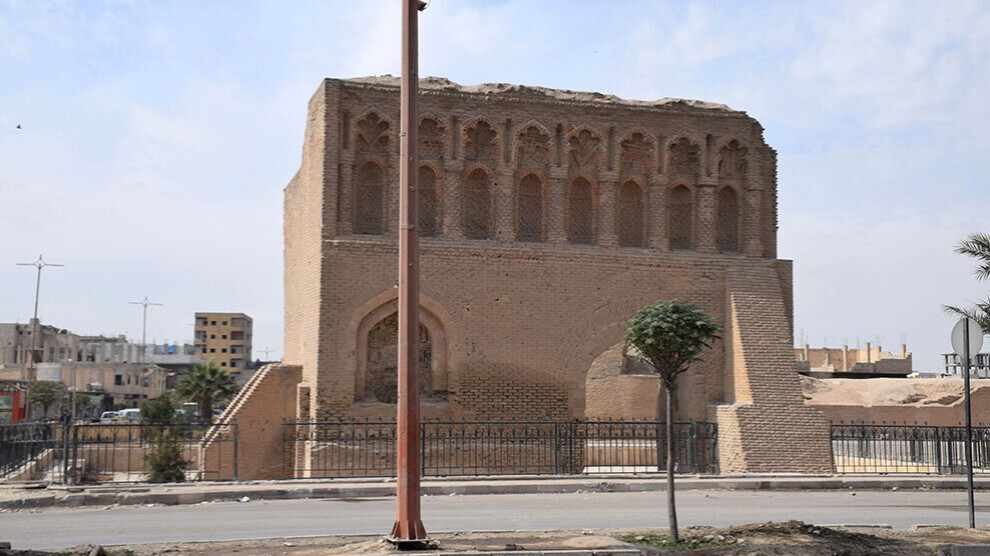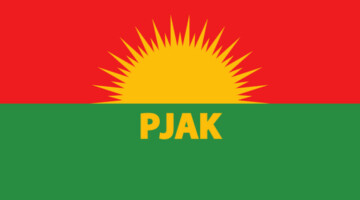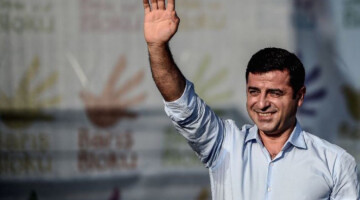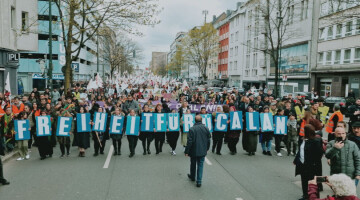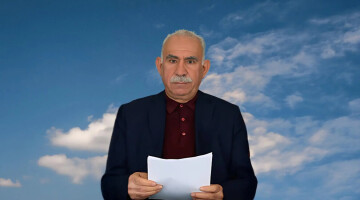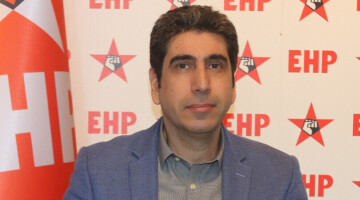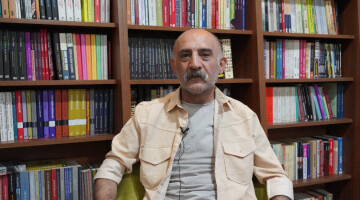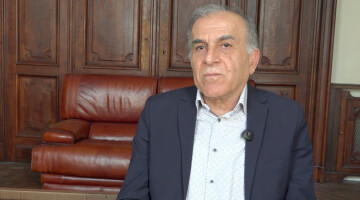Only five years ago, Raqqa was destroyed. The Islamic State had mined the city and fought for every house in its "capital". The Syrian Democratic Forces (SDF) managed, with heavy losses, to liberate Raqqa, which had sadly become known for its torture centers, markets for enslaved Yazidis and execution sites. The city was liberated on 20 October 2017. The offensive on the city lasted 166 days.
One of the first steps after liberation was the establishment of the Raqqa Civil Council. It coordinated the reconstruction of the city. Before reconstruction, however, came the removal of minefields and booby traps. Thousands of mines have been deactivated and ISIS positions demolished to build new routes.
Rebuild 50 percent complete
In the city, which was almost completely destroyed and badly damaged in terms of infrastructure, the Civil Council rebuilt the destroyed buildings within five years and repaired the damaged houses with the help of the committees it had set up. Electricity and water were supplied to the city center and rural areas.

According to Saddam al-Ali, co-chair of the Reqqa Civil Council's Committee on Local Government and Communities, 50 percent of services such as reconstruction, electricity and water supply have already been completed. During the reconstruction of the infrastructure system, vast amounts of debris were removed from the city center, the streets were paved, cleaned and a lighting system was installed.
Raqqa Bridge rebuilt
Al-Ali told ANHA news agency that the Raqqa Bridge, which connects the city center with the southern outskirts, has been rebuilt. In addition, nine bridges were built around the city in 2022, some crossing irrigation canals and dams, bringing the number of bridges to 16.
Road construction is progressing
In particular, the reconstruction of the roads played an important role and made great progress in 2022. 8,000 cubic meters of asphalt were used for road construction in the city and 10,000 cubic meters of asphalt in the countryside. The road construction program is 75 percent complete. 3,000 applications for repairs and new buildings have been approved.
Restoration work
Raqqa is an ancient city. The first settlement remains can be traced back to the year 6,000 BC. From the Old Babylonian Empire through Hellenism to Late Antiquity, Raqqa was known as a city by various names. In 639, the city was conquered by the Muslim armies and renamed ar-Raqqa. Raqqa was converted into a model city of Islamic architecture and, with its Christian, Islamic and Jewish buildings, was considered a historical treasure of various denominations. However, most of the historic buildings were destroyed by the Baath regime, but above all by the so-called Islamic State and the struggle to liberate the city. With limited resources, the self-government was able to completely restore four historical places and partially restore 13 others. The Religious Affairs Committee restored the Martyrs' Church in front of Al-Rashid Park in the city center and opened it for worship.
Return to Raqqa
In the course of reconstruction, hundreds of thousands of residents returned to the city. According to Civil Council records, the number of people who have returned to the city in five years has reached 900,000. There are also 25 Christian families among the returnees. In addition to the returnees, the number of internally displaced persons in Raqqa is estimated at 16,000, but in fact it is likely to be much higher.
Developments in the economic field
One of the most important works of the Raqqa Civil Council was the reconstruction of agriculture and industry. Before the war, Raqqa was of particular importance in this context.

Raqqa Civil Council Economic Committee co-chairman Raşad Kurdo stated that numerous projects have been implemented, including the olive oil processing plant in the north of the city, the drying plant in the city, the cotton factory, the construction of six dried fruit and grain warehouses in the rural areas, the fodder factory, a pitch factory and a mill.
Within five years, 380 licenses to set up industrial plants were issued. In addition, oil was distributed to facilitate work in factories and industrial plants. Kurdo also noted that 108 bread bakeries have been opened to meet the daily needs of the population.
Developments in the agricultural sector
Irrigated agriculture plays an important role in Raqqa. These include the al-Raid and al-Belih projects. These are two of the largest irrigation projects in northern and eastern Syria. The Agriculture and Irrigation Commission put 24 completely destroyed irrigation pumps back into service. Irrigated agriculture is practiced on 93,000 hectares of land in Raqqa, while 190,000 hectares of land are farmed with river water and 140,000 hectares of land are farmed with well water.
The wheat harvest in 2022 will yield 120,000 tons. Last year the cotton harvest yielded 25,000 tons and the corn harvest 75,000 tons. The "Social Farming Development Company" modernized a rice drying plant with a capacity of 1,800 tons per day. Rice cultivation should also be promoted.
Rebuilding the health system
One of the most important areas of work of the civil council is the development of health care. With the support of the Health Council of North and East Syria, destroyed hospitals and health centers have been rebuilt and put into operation, while new hospitals and health centers have opened. A maternity and children's hospital, a Heyva Sor a Kurd clinic and 30 health centers have been opened in the city center and in the countryside, emergency teams, ambulances, nurses and doctors have been hired.
Education and teaching
With the reconstruction, nearly 140,000 students returned to schools, and about 6,000 teachers and administrators were deployed to 380 schools, including elementary, middle and high schools. The coordination of universities in North and East Syria also opened Sharq University in Raqqa.
"Life returned thanks to the Civil Council work"
Abduselam Hemsorik, Member of the Presidium of the Raqqa Civil Council, stated that life in the city could be rebuilt thanks to the cooperation of the Civil Council and the returnees, telling ANHA: "North and East Syria has a unique situation in which will sow the seeds of democracy and common life for all regions of the Middle East.”

Building the democratic nation
One of the most important developments in the city is taking place in the political sphere. While the city's administration is made up of all components of the population in a grassroots-democratic manner and focuses on organizing pluralistic coexistence, political parties and various non-governmental organizations are working on the implementation of the democratic nation project.

Zilîxa Ebdî, member of the general assembly of the "Party of the Future", explains that there is a great deal of interest in Raqqa in the implementation of the democratic nation project. This is the result of the cooperation of different identities, cultures and worldviews in Raqqa.

